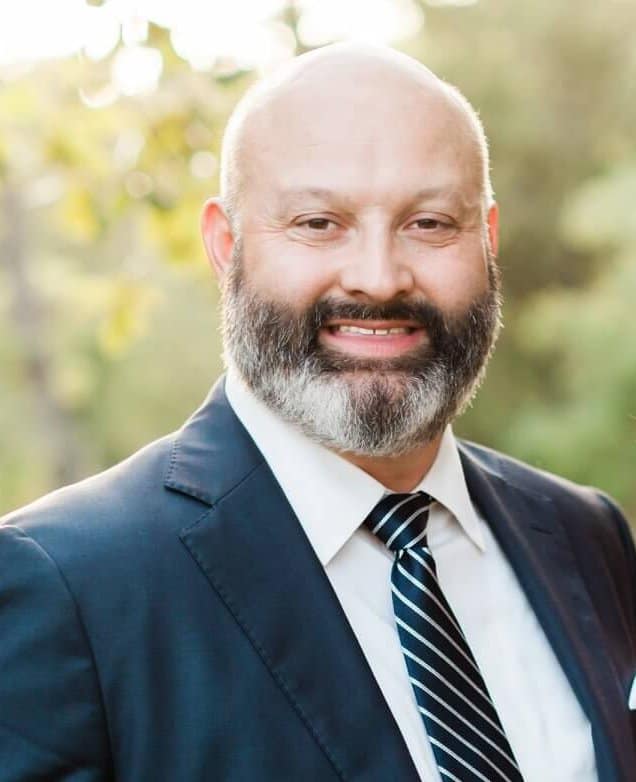
by Eric Dombach | How to Become a Business Coach
Do you ever make the rookie mistake of talking past your business coaching prospects?
For my first couple years as a business coach, I struggled with how to get prospects to really understand I could help them.
I’d gotten good at building rapport, sniffing out problems in their businesses, and uncovering emotional hot-buttons–but closings were still slower coming than I wanted.
I finally realized it was because I hadn’t found a way to clearly communicate my problem-solving value. They’d present me with problems…and I’d respond with vague, convoluted explanations of how we’d fix them!
Though I had complete confidence that my bag of tricks would generate incredible results, getting prospects to catch the vision was tough. Sometimes, it felt like we weren’t even on the same planet–let alone the same page!– as I tried to help them understand what the process would be like.
I knew I had to DEMONSTRATE my value somehow if I was going to get my business coaching prospects to cut huge checks right on the spot.
Enter the 21 Silver Bullets
Then, one Saturday morning, it dawned on me: there are about 21 common problems I see over and over. If I could assign compelling names to their solutions, it would completely revolutionize my sales process!
I jumped out of bed and ran to my computer. And two hours later, my “Silver Bullet” system was born!
I organized all my bullets into “buckets”–time, team, and money.
Here they are:
TIME
- Apprenticeship plan
- Operations and training manual
- Time management plan
- Comprehensive Exit Strategy
TEAM
- Employee Acquisition Plan
- Psychometric Profiling Process
- KPI Measurement System
- Lean Manufacturing Program
- Performance Incentive Plan
- Strategic Plan
- Leadership Development Plan
- Team Meeting Rhythm
- Organizational Plan
- Team Building System
MONEY
- Current Business Plan
- Break-Even Plan
- Revenue and Profit Plan
- Cash Gap Plan
- USP and Guarantee
- Sales Management System
- Tactical Marketing Plan
Why it Works
As soon as I began using these magical Silver Bullets in my sales process, conversions skyrocketed–while the amount of time my business coaching prospects spent hemming and hawing plunged!
That’s because I showed them simply and succinctly that I could help them…thanks to my clear vocabulary for diagnosing AND solving their problems.
Just imagine what it would do for your sales if you could have compelling conversations like these…
COACH: Well Ms. Prospect, from what you’re saying it sounds to me like you’ve got a problem differentiating yourself in the marketplace. Would you agree?
PROSPECT: Absolutely.
COACH: So, let me ask you this. What kind of a USP and Guarantee do you have in your business?
PROSPECT: What do you mean by that?
COACH: Good question. I can help you put together a Unique Selling Proposition and Guarantee so that your ideal clients feel absolutely compelled to do business with you INSTEAD of your competitors because you’re different than all the rest. Are you open to some help with that?
PROSPECT: Sure!
COACH: Okay. So, the very first thing we’ll do in your coaching program is implement our USP and Guarantee process. This will clarify the MOST profound, powerful reason people should do business with you and your competitors won’t know what hit them!
The response I received to this system was incredible. Suddenly, my business coaching prospects could picture themselves working with me, because they saw I had a clear vocabulary for communicating solutions. They began to envision how much happier they’d be when we “slew” their problems with my Silver Bullets.
Suddenly, my business coaching prospects could picture themselves working with me, because they saw I had a clear vocabulary for communicating solutions.
Here’s another example…
COACH: Well Mr. Prospect, from what you’re saying it sounds to me like you’re just dying from lack of cash flow. Would that be fair to say?
PROSPECT: Absolutely.
COACH: So, let me ask you this. What kind of a Cash Gap Plan do you have in your business?
PROSPECT: What do you mean by that?
COACH: Good question. I can help you put together a Cash Gap Plan to help you quickly collect outstanding receivables, get your customers to pay on time, and improve your terms with vendors so that your bank account always has plenty of cash it. Are you open to some help with that?
PROSPECT: Sure!
COACH: Okay. We have more than 13 easy-to-use strategies to help you generate cash flow QUICKLY. So, one of the first things we’ll do in your coaching program is implement a few of these…
Think you’ll close more sales that way?
Absolutely. Heck, I sure did!
For maximum results, I recommend you shoot AT LEAST THREE Silver Bullets before you ask prospects for the next step. Teach your salespeople, telemarketers, and associate coaches to do the same.
For more great tips and tricks on becoming a business coach, check out my FREE ebook, How to Become a Business Coach.

by Eric Dombach | Business Coaching Tools
You’ve heard the old adage, “Those who can’t do, teach.” (Or perhaps the coaching equivalent, “Those who can’t do, coach.”) And in some cases, that’s true. There are teachers and coaches alike who have little real-world experience and whose knowledge is only theoretical. But that’s only half the story. The best coaches are the best practitioners–people who have been there, done that when it comes to growing a business.
There’s a reason why “buyer beware” is good advice for overhyped marketing promises and get-rich-quick schemes. If some of these so-called “thought leaders” spent as much time doing the work as they do bragging, they wouldn’t have time to brag at all! But that doesn’t mean there aren’t highly skilled coaches and teachers who are passionate about imparting their knowledge.
I’m a huge advocate of every coach finding a coaches’ coach–someone who can walk with you through the ups and downs of client acquisition, retention, coaching, and profit maximization. But you need to be able to discern the pretenders from the practitioners.
Here’s how to tell them apart.
Someone who spends most of their time doing
Pay attention to people’s resumes. What kind of experience do they have as a coach or an entrepreneur? What kind of success have they experienced? And more importantly, how engaged are they still in the business of business? A proven track record and a commitment to staying current on trends and tactics go a long way toward ensuring you have someone you can rely on.
A system and a method
Skilled practitioners approach their work with a system and method in mind. Why? Because hard-won experience has shown them what works and what doesn’t. Beware those who give advice but can’t articulate why it matters–this is usually a sign of an untested method.
Skilled practitioners approach their work with a system and method in mind. Why? Because hard-won experience has shown them what works and what doesn't. Beware those who give advice but can't articulate why it matters--this is usually a sign of an untested method.
A heart for teaching and coaching
While the best coaches are the best practitioners, the opposite isn’t always true: not all skilled practitioners make good teachers and coaches. Sometimes, they operate on instinct, and can’t quite articulate the cause of their success. And if they can’t articulate it, they can’t share it! So spend time with a potential coaches’ coach and get a feel for their teaching and coaching skills before making a hire.
Certified Coaches’ Coaches do all three
At the Coaches’ Coach, we take care to ensure that our Certified Coaches’ Coaches check all the boxes. In order to be considered for certification, they have to be bringing in over six figures annually in revenue as a coach; they use our own Coaches’ Coach comprehensive coaching system, which was created from years of on-the-ground coaching experience; and we vet them to ensure that they are gifted teachers and coaches who have passion for passing on their knowledge. If you’re looking for a coaches’ coach, try a free 30-day trial of our system, and get a complimentary coaching session with one of our Certified Coaches’ Coaches.

by Eric Dombach | Results
I’m an energetic business leader with a masters degree in finance and CPA and CCIM credentials. In my most recent executive role, I led a business unit doing $1.9 Billion in revenue for a publicly traded company.
When I decided to go out on my own, I knew I needed an approach to business coaching that was easy to replicate. The selling process you get with Coaches’ Coach is concise, proven, and easily replicable. I banked $17,000 in my first month using the processes that the Coaches’ Coach has laid out for lead generation, closing, and coaching. I was able to demonstrate immense value as a business coach by using the Coaches’ Coach systems and processes in my sales pitch. In my second month in the program I’ll bank $25,000. The ease of use, quality of the video and audio instruction and materials hands-down exceeded my expectations.
Also, as a business coach, I know that people need accountability. But I didn’t have it. Coaches’ Coach instantly created two separate points of accountability for me. First is the direct one-on-one coaching with Eric Dombach, my cohort leader, and the second is being a part of our cohort’s weekly group coaching calls, talking about what we’re doing and reporting out on our successes and challenges. They’re inspiring me to work harder and this level of accountability has been a huge part of my success.
I’m unbelievably impressed with the Coaches’ Coach system and I can’t recommend it highly enough!
Chris Duzich

by Eric Dombach | Business Coach Training
Objections are part of the sales process. It means you have an engaged business coaching prospect who is seriously considering what you have to offer.
Of course, how you handle those objections can mean the difference between a high-paying new client and another hard no.
So how should you respond when your prospect offers objections to coaching?
Learn the three A’s and C’s!
Just to mix things up, let’s start with the C’s–the things you should NEVER do.
When you find yourself falling into any of these traps, you’ll know that the window is closing fast on the opportunity in front of you.
The Three C’s
- Contradict: Make them wrong and make the conversation confrontational.
- Cower: Then you stumble, fumble, and bumble because the conversation is no longer pleasant.
- Curse: Now you’re angry at yourself, saying, “How did I mess this up???”
The three A’s, on the other hand, keep the conversation friendly and productive, which will eventually relieve sales pressure and help you have genuine conversations that bring you closer to a sale.
The Three A’s
- Agree: Make them right by agreeing with whatever is true about what they said.
- Answer: Quickly and honestly answer whatever questions they ask.
- Ask: Immediately after answering their question, ask them an open-ended question to take control of the conversation and get them talking.
A Real-World Example
So what does it look like in real life to handle objections to coaching? Here’s an example you can probably relate to!
PROSPECT: Everything is going just fine, why should I bother talking with you?
COACH: Wow, that’s really good to hear! You must be doing a lot of things right. I guess the only reason you’d talk to me is because I may be able to help you make things better. Are there areas where you feel like things could be better?
PROSPECT: Well, things can always be better, I suppose.
COACH: True. What would you say is the main thing you’d like to improve in your business right now?
Remember, just like anything, to get good at handling objections you must practice relentlessly. Write down the most common objections you hear to business coaching, then grab a partner and practice responding. Soon it’ll become second-nature to avoid the C’s and live the A’s!
Just like anything, to get good at handling objections you must practice relentlessly.
What else does it take to become a successful business coach? Check out our FREE ebook, Secrets of a Business Coaching Rock Star.

by Eric Dombach | How to Become a Business Coach
In a previous post, I shared two rookie mistakes I see all the time: business coaching burn-out and burn-up. What’s the antidote?
A little something I call burn-on.
Burn-ons know they’re in it for the long haul. They understand that building a successful business coaching practice can be intimidating. You might struggle with doubts about your level of experience, your ability to position yourself well with clients, phone reluctance, the ins and outs of entrepreneurial budgeting, and even a lack of working capital.
But burn-ons have gone all-in and have no plan B. They plan well, work hard, and stay the course even in the face of adversity.
They understand that successful marketing campaigns aren’t one-and-one. Instead, they’re the result of consistent effort to a list of ideal prospects over a period of years. Not weeks. Not months. Years.
They understand that there are no magic bullets. Instead, success in business coaching is the result of hard work over time.
They understand that a set-back today brings you closer to success tomorrow. They have a clear vision that keeps them going.
They keep my “secret formula for success” in mind:
Do the RIGHT THINGS in SMALL AMOUNTS over a LONG PERIOD OF TIME.
How to Be Sure What the Right Things Are
Of course, in order to do that, you’ve got to be sure what the right things are.
Many cases of business coaching burn-out aren’t the result of a lack of hard work–but working too hard on the wrong things!
Many cases of business coaching burn-out aren't the result of a lack of hard work--but working too hard on the wrong things!
There are two ways to fix that:
- Trial and error. Get out there and pound the pavement. Make mistakes. Learn from personal experience exactly what works and what doesn’t. It might take some time, but if you stick with it, you’ll get there.
- Learn from those who have gone before. Find out what successful coaches do and replicate their efforts. Leverage their experience to shortcut the time, effort, and cost of growth and development.
Both are effective. One is just a heck of a lot faster than the other. (As a coaches’ coach who preaches the value of working with an expert who can hold you accountable, you can probably guess which option I recommend.)
Want a comprehensive look at the right things you should do at the beginning of your career? Get my FREE ebook, How to Become a Business Coach and work your way through it. It will put you on the path to success by leveraging the trial and error I experienced when I was first starting out. Enjoy!





